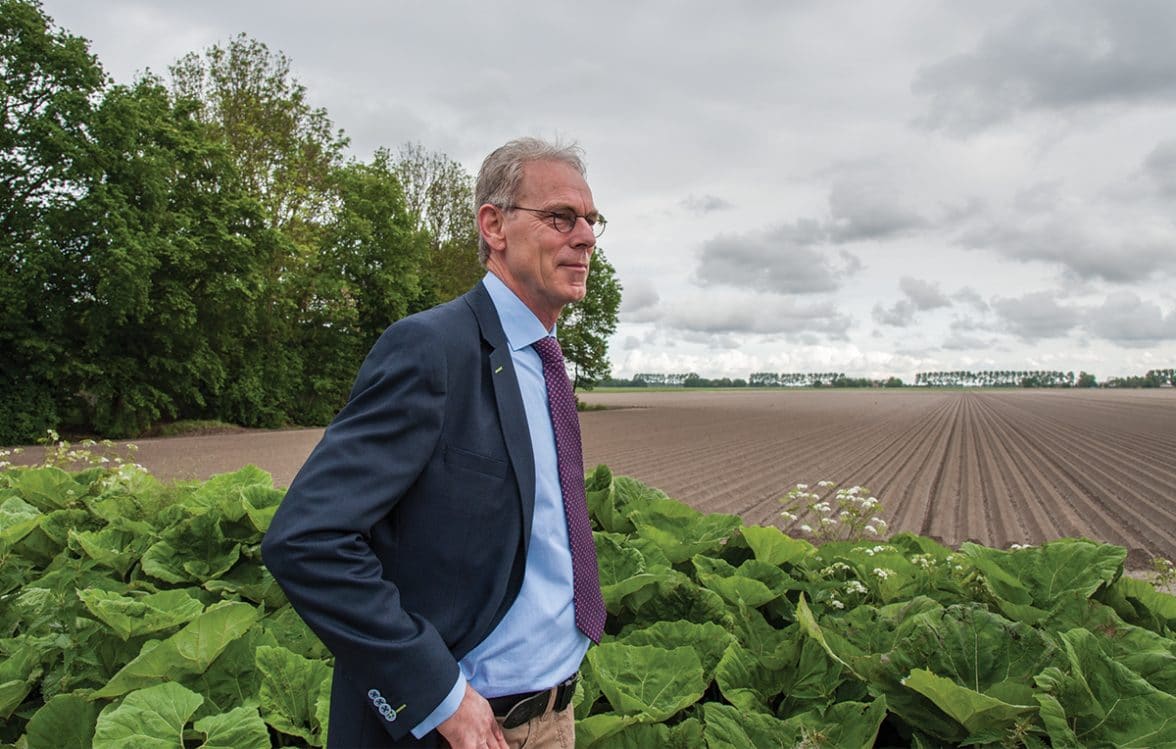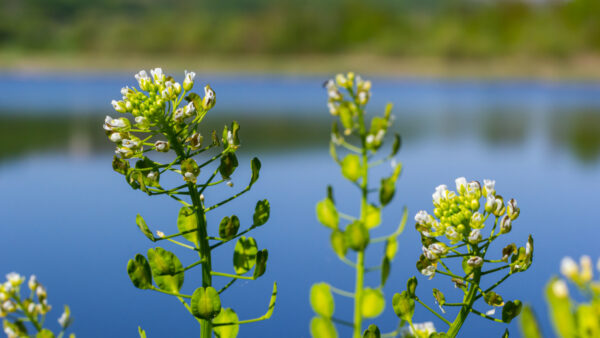Ensuring breeders’ rights are defended is key for a whealthy European seed industry.
Plant Breeders Rights (PBR) are rights granted to the breeder of a new variety of plant that give that breeder exclusive control over the resulting plant material (including seed, cuttings, divisions, tissue culture) and harvested material (cut flowers, fruit, foliage) of that variety for a number of years.
Unfortunately, these rights are infringed upon on almost a daily basis. Breeders can sue to enforce their rights and can recover damages for infringement, but this is a complicated task and is hugely expensive.
Breeders Trust was founded in 2008 out of a desire to change the fact that around the world, seed is reproduced and marketed illegally and breeders’ rights are violated. It fights intellectual property infringement in the potato and grass seed sector.
Its formation was initiated by nine leading seed potato breeding companies — Agrico, C. Meijer, Danespo, Europlant, Germicopa, Hzpc, Kws Potato, Norika and Solana. Together, these companies account for over 80 per cent of the newly developed potato varieties within the EU.
In 2012, seven prominent international grass seed breeding companies decided to join Breeders Trust as well — Barenbrug, DLF-Trifolium, Euro Grass, Germinal Holdings, NPZ Lembke, RAGT Semences, and Saatzucht Steinach GmbH & Co.
“Illegality, breach of contract and infringement on breeders’ rights can occur throughout the whole chain, not just with farmers, but also with traders or processors,” says Geert Staring, general manager for Breeders Trust.
“Therefore, Breeders Trust works throughout the whole value chain. We noticed there is a lack of awareness of these intellectual property laws and regulations. By communicating with stakeholders throughout the industry, we try to educate and convince them that payment of licences is required and important.”
If needed, Breeders Trust is not reluctant to bring extreme infringers to court. Internationally, it builds on a network that benefits from relationships with inspection services, farm-saved seed collecting agencies, fraud authorities and food safety authorities. By bringing concrete cases to their attention, it helps law enforcement and ensures PBR remains on their agenda.
Structure
Breeders Trust is a small organisation based in Brussels. With a general director at the top, a project manager is appointed and lawyers all over Europe are brought into the fold to help it in its work. The purpose of Breeders Trust is to contribute to an undisturbed development for newly bred varieties, and in this context it ensures a level playing field for all players in the whole chain — be it seed potato or grass seed.
“In view of enforcement of rules and legislation, the seed potato and grass seed industries are different. In the seed potato sector, we primarily focus on infringements of PBR. We take strong action against illegalities and violation of PBR laws. It not only creates an unfair playing field, but it can even be a threat to the entire potato production chain because of the risk of contamination from phytosanitary diseases,” says Staring.
“In the grass seed sector, the focus tends to be more on preventing illegal activities such as sales of seed of unregistered varieties, mixing cheap uncertified seed into certified seed lots and mixtures, misuse of trade names or use of forged certificates. Furthermore, the challenge here is to put a hold on illegal importation of lots of grass seed and grass seed mixtures in the EU. In this respect, there are major infringements — in particular in southern European countries — which strongly disrupt the market and which need to be stopped.
There are several other national organisations active in the field of IP enforcement in the EU, but Staring says Breeders Trust is a unique one that sets itself apart from the others.
“National organisations do have more expertise in the local market, but usually have many different crops in their portfolio. Breeders Trust only focuses on seed potatoes and grass seed, and specialises in those products and enforcement activities. Infringements and illegal trade doesn’t stop at the border. In the global seed industry, you have to act globally and work together with many authorities in order to stop illegal cross-border activities.”
Legalities
Within Breeders Trust, the decision to begin legal action is made only if it is in the benefit of all members, says Staring. Probability of winning is often not of the utmost importance — sometimes, jurisdiction and challenging interpretation of legislation is the goal. Twice a year, Breeders Trust organises a members/stakeholders meeting where cases are evaluated.
“In the past few years, Breeders Trust frequently became front page news when it won court cases against intellectual property infringers, and of course we continue with that. Frankly, up to now we have never lost a single court case. But I am most proud of working to improve the legal system surrounding intellectual property in general,” says Staring.
One recent example occurred in Belgium, where Breeders Trust sued the Belgian government to hand over farm-saved seed administration records. In the interests of food safety, all farmers in Belgium are asked to supply the government with information on how many acres of farm-saved seed they plant.
“Initially, the Belgian government hid behind privacy laws and refused to supply those records to us. After a lengthy lawsuit, the judge ruled in favour of the affiliated breeding companies. Breeders Trust has a legal right to receive this essential information in order to enforce PBR,” says Staring.
Since then, in some other European countries Breeders Trust has successfully received information based on the Freedom of Information Act in that jurisdiction.
Breeders Trust is presently active in the grass seed sector in — among other countries — France, Poland, Portugal, Hungary and Italy. Moreover, Breeders Trust also focuses on major European ports to identify lots of uncertified grass seed arriving from overseas, which are subsequently transported to various European member states where they are given a new identity.
“The grass seed industry has often been aware of illegal activities in certain markets and with certain products, but in the past only a very few companies had the courage, or the time, to fight these illegal activities on their own,” says Jos van der Wielen, managing director at Barenbrug Holland and chairman of the Breeders Trust grass seed technical council.
However, when the major grass seed companies got together and joined breeders trust in 2012, things improved dramatically, he says. Now, when illegal activities are found or suspected, Breeders Trust immediately takes the lead in investigating and ultimately exposing and prosecuting the perpetrators.
“The market environment is now improving, and companies are no longer standing on the sidelines when illegal things happen. The companies that are caught selling illegal seed are named and shamed, and people in the industry are taking notice. We already see signs of fewer instances of illegal seed being offered in the marketplace.”
Breeders Trust has made good progress in Italy over the last several years, according to Staring. Together with the Belgium-based Anti-Infringement Bureau for Intellectual Property Rights on Plant Material, an agreement was signed with Italian authorities to combat intellectual property infringements.
“We want to make sure that we remain on top of these illegal activities, and therefore we continue to carefully monitor the global flow of grass seed. By doing so, you see that illegal flows of seed are being interrupted, and there is a tendency based on import/export figures that these activities are being slowed down or moved to other places,” says Staring.
Trends
Some countries are more developed than others with respect to plant breeders’ rights legislation, implementation and enforcement. According to Staring, this produces a variety of different trends with regard to global intellectual property infringement.
“Even within Europe, there are large differences in enforcement. The good news is that slowly but surely, things are moving in the right direction. For example, in France potato growers last year finally reached an agreement with farmers unions on the collection of farm-saved seed royalties. On the other hand, the French legislature doesn’t aid seed breeders, since penalties are too often insufficient to stop infringement by notorious offenders,” says Staring.
“What you often see is that in many countries, authorities consider PBR enforcement as a stepchild. In some countries even judges don’t understand the legislation and the importance of PBR. There still is a lot of work to do. Public and private cooperation is the key to achieve in a long-term strategy.”
Nevertheless, Staring is optimistic that through intensive communication — and occasionally litigation — infringement damage will be minimized enough so breeders can focus fully on their job.
“We clearly see that just being present in the industry has a deterrent effect and prevents people from profiting off PBR infringement.”
In the potato sector, the number of court cases concerning intellectual property violations have actually decreased over the past few years.
“For us potato breeders, it really is important that Breeders Trust supports us to enable ongoing development of modern varieties to the benefit of farmers and consumers,” says J√∂rg Renatus, managing director for Europlant who serves as chairman of Breeders Trust. “Breeders Trust defends the rights of those who respect the rules.”
According to Staring, it’s encouraging to see that the current generation of farmers is also very much aware of the role they can play in protecting PBR.
“They form a vital link in the food chain. They also realize that without breeders, farming is pointless. In a successful modern chain, one is dependent on the other, but one also helps strengthen the other. Short-term thinking does not fit in there. Of course, there will always remain outlaws who only listen when they are treated harshly. Breeders Trust takes firm action against them in the interests of the whole sector,” says Staring.
And because of Breeders Trust, “end users can be more confident that the seed they buy is the genuine product and not a fake alternative,” adds van der Wielen.
Staring notes than in a perfect world, PBR legislation would not be necessary — everyone would understand that intellectual property must be respected and that infringement and illegal sales are unacceptable. In the real world, in addition to good communication with the agricultural sector, sufficient enforcement will be required to protect PBR.
“Breeders Trust cannot do its job working by itself,” adds Staring.
Anyone with information on PBR infringement is asked to report it either anonymously or through www.breederstrust.eu.












